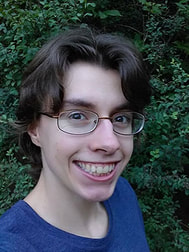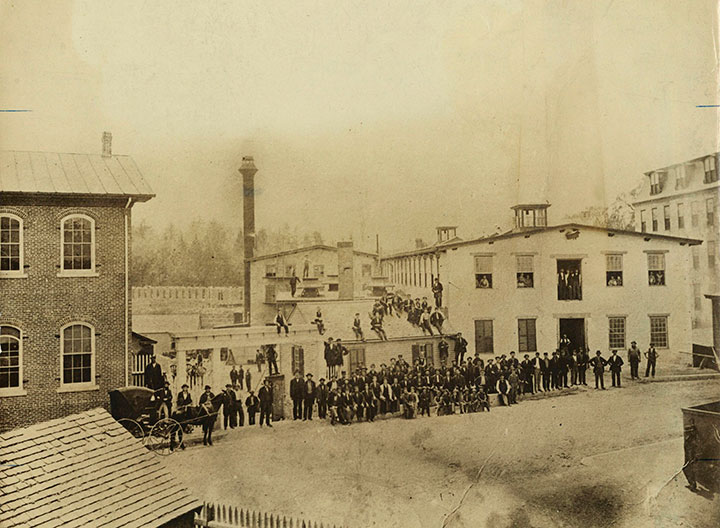|
By Abigail Epplett While taking a “Museum & Digital Technology” class at Tufts University last fall, I was tasked with creating a system that utilized new technology and was beneficial to an organization in my community. I live in the Blackstone River Valley, a national park with a rich history whose story has not been fully told. I began thinking about the difficulties of collecting the oral histories of lifelong residents and being able to share them with the public. I realized that I could create an easy-to use interface that would allow personal historians to gather stories from millworkers using their computer or mobile device, along with spreading the stories online or through social media. (You can look at the process here.) The Blackstone River Valley has a long history as the “Birthplace of the American Industrial Revolution.” At the southern end of the valley, Slater’s Mill in Pawtucket, RI became the first water-powered mill in the United States in 1793. From then on, hundreds of mills in all shapes and sizes were built on the Blackstone River and its tributaries. Local people left their farms to work in the mills, while immigrants came from Europe and Canada to run the machines. Amazingly, this millworker lifestyle continued until the 1970s, when the last of the mills closed down. Because this way of life continued for so long, some of the former millworkers still live in the Blackstone Valley. The youngest are in their mid-seventies, while most remaining mill workers are older. Within a few years, the last of the millworkers will be gone, and their stories would be lost. When working alone, I didn’t have any funding to create a completed product. That’s where Blackstone Heritage Corridor, Inc. (BHC) came in. When the COVID-19 restrictions hit, I connected with BHC to begin a summer practicum under the supervision of Volunteer Coordinator Suzanne Buchanan. After pitching the idea to her, she arranged a Zoom meeting for me to seek support for the project. An initial meeting with BHC and National Park Service staff and volunteers was highly successful, and I was given the go-ahead to build the project, thanks to funding found by BHC director Devon Kurtz. I have been working with media expert Brad Larson to put my interface over his StoryKiosk framework, along with local historian and PHNN member Marjorie Turner Hollman to create a list of interviewing questions to guide the storytellers. To find millworkers who want to tell their stories, I hope to turn to a few different sources. During the early stages of recording, as I find the best way to interview millworkers using this new technology, I will collect the stories of local community members whom I have known for most of my life. Many local historical societies are run by the very same people who once ran the mills, and they have kept in contact with their fellow workers. The Rhode Island Manufacturers Association is another resource, as they connect the industries of the past to those of the present. I’m excited to begin collecting stories from the former millworkers of the Blackstone Valley. All of the stories will be held in a database that can be made accessible to other organizations related to the Blackstone Valley, like the Museum of Work and Culture in Woonsocket, RI. Selected stories will be shared on the BHC social media, including their Facebook page, Instagram feed, and YouTube channel, along with hopefully appearing in future exhibits once restrictions are lifted. If you know anyone who worked in the mills of the Blackstone Valley or had close family that worked in the mills, feel free to send them my way! My email is [email protected]. Bio Abigail Epplett is a MA candidate in Museum Studies at Tufts University, focusing on informal education and American history. She recently completed a summer practicum with Blackstone Heritage Corridor, Inc., a non-profit organization affiliated with the Blackstone River Valley National Historic Park in Massachusetts and Rhode Island, and continues to volunteer with the National Park Service. Members and invited guest writers are welcome to submit posts, which will be approved, and edited. Personal business promotion will disqualify submissions. Author attribution with brief (50 words or less) bio and headshot is required. For information, email Marjorie Turner Hollman.
5 Comments
|
PHNNWe are an organization of professional Personal Historians from the New England States. Categories
All
|

 RSS Feed
RSS Feed